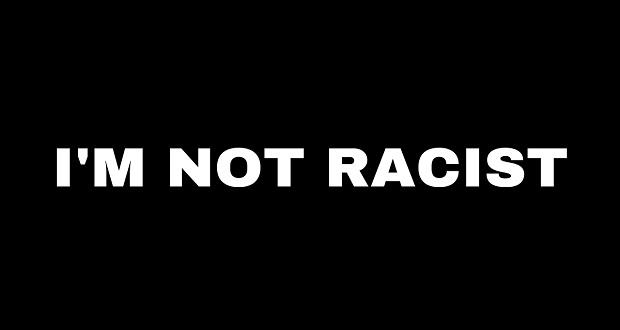The past two weeks have felt particularly heavy. I will not recount the specific instances of violence, white supremacy and dehumanization of Black bodies in this post — it’s just way too triggering. However, it is this social context that creates a greater urgency and call to action for organizations and justice, equity, diversity, inclusion (JEDI) firms to interrogate the ways in which we partner to be less reactive and more responsive to injustice in service of moving this work forward.
At The Winters Group, we are often called on to support organizations in creating spaces for employees to process traumatic, external events and build internal capacity to engage in Bold, Inclusive Conversations®. We are called on to introduce justice-centered concepts that are new to the ‘corporate world’ in support of leadership’s espoused commitments to prioritize anti-racism and justice. This is important work… AND now is a timely opportunity to reimagine strategic, accountable partnership. I have read and heard from many Black and Brown people that they are experiencing “listening session fatigue” within their organizations. People want change. People want action. This is important work.
How can we move beyond listening sessions to more strategic, accountability-driven partnership?
I would like to first underscore strategic, accountability-driven partnership. In my experience, JEDI partners are most often engaged by organizations as part of broader commitments made in response to something that has already happened (e.g.,company joins an industry-based DEI council, company takes public stance against racism, company is accused of perpetuating racism). In these instances, a JEDI consulting partnership becomes one tactic that is part of a broader commitment.
This model makes it easy to relegate the impact of this partnership to training, listening sessions and other perceivably reactive measures. In other words, the strategic commitments and internal communications are more often than not pre-defined, established and communicated without consultation from an external JEDI partner. These commitments are often developed by the very same leaders who have historically failed to meet the needs and calls to action of their Black and Brown employees or legal teams, and by HR, who are striving to mitigate risk. Certainly, internal Diversity Officers are likely to be engaged… and this is valuable… and we also know that internal proximity to power and institution can make it just as difficult for internal diversity officers to embody the role of disruptor. Organizational systems make it so diversity officers are more accountable to leadership and HR than they are to ‘the people.’ This is the ‘business case’ for more strategic, accountable partnership with external JEDI firms.
External JEDI consulting partnerships can no longer be window dressings or one tactic part of pre-defined strategy. There is immense opportunity for organizations and leaders to leverage external JEDI partners as a voice of accountability. This might look like:
External JEDI consulting partnerships can no longer be window dressings or one tactic in a pre-defined strategy. There is immense opportunity for orgs and leaders to leverage external JEDI partners as a voice of accountability. Click To Tweet1.) Engaging a JEDI partner to design an equity- and justice-centered process for defining your broader DEI strategy. This means systematically bringing the voices, perspectives and feedback of those most impacted by your systems [of inequity] to the decision-making and strategy–defining processes. This would also mean actively involving those who have been harmed, perhaps even been vocal about that harm, in the process. We cannot achieve justice without lifting up the voices of those who have actively challenged the system.
2.) Involving a JEDI partner in ‘crisis communication’ efforts. This means leveraging not only legal teams as usual to mitigate risk but also engaging a JEDI partner in these conversations. There will always be a need to understand and calculate risk… and organizations who espouse justice must also recognize and model taking accountability for the harm they’ve caused. In instances where a legal partner might prioritize silencing a perspective or experience that presents risk to the organization, a JEDI partner might prioritize re-building trust and amplifying the lived experiences of those who have experienced harm. JEDI partners should be part of developing communications, sharing commitments, and developing processes for ongoing transparency.
3.) Partnering to interrogate organizational systems. Systems go beyond those that are human resources-focused. Interrogation also differs from analysis. Part of justice work involves acknowledging and owning complicity. A scaled, comprehensive, justice-centered audit is less about identifying ‘if’ inequities exist and more about amplifying how they have persisted in people, processes, policies and practices, financial and compensation systems, external communications and partnership, investments, vendor selections, political donations and the like. It involves understanding how the organization can actively shift outcomes and lower disparities in societal systems: health, education, employment, entrepreneurship.
Part of justice work involves acknowledging & owning complicity. A scaled, comprehensive, justice-centered audit is less about identifying ‘if’ inequities exist & more about amplifying how they have persisted. Click To Tweet4.) Requiring a JEDI partner take a trauma-informed approach to training and learning experiences. The system of racism impacts white people and Black and Brown people differently. This means the “work” we are to engage in to disrupt these systems is different. The learning we need is also different. It can be retraumatizing for Black and Brown employees who continue to experience the impact of our current systems to also be expected to watch their white counterparts come into their own ‘aha’ moments about the same system. It can be just as traumatizing to be expected to share and reshare one’s pain and experiences without any subsequent commitment to action from colleagues. A JEDI partner would take this into consideration when recommending or designing any solution that seeks to address racism.
The system of racism impacts white people and Black and Brown people differently. This means the 'work' we are to engage in to disrupt these systems is different. The learning we need is also different. Click To TweetI liken the role of JEDI partners to the little person on the organization’s shoulder always posing the questions: Who benefits from this? Who is harmed by this? How can we shift or redistribute power?
I liken the role of JEDI partners to a little person on the organization’s shoulder always posing the questions: Who benefits from this? Who is harmed by this? How can we shift or redistribute power? Click To TweetI imagine just like this week, there will be many more weeks that are heavy. Inasmuch as there is meaning and value to much of the interpersonal level of systems work we will be called to support, this moment or movement begs for something different. We can, and must, begin to move toward strategic, accountable partnerships.
Note: It is not lost on me that this call to action also requires external consultants alike to evolve our own practitioner toolkits and approaches to this work. We must model collective accountability… That is another post for another day.




















